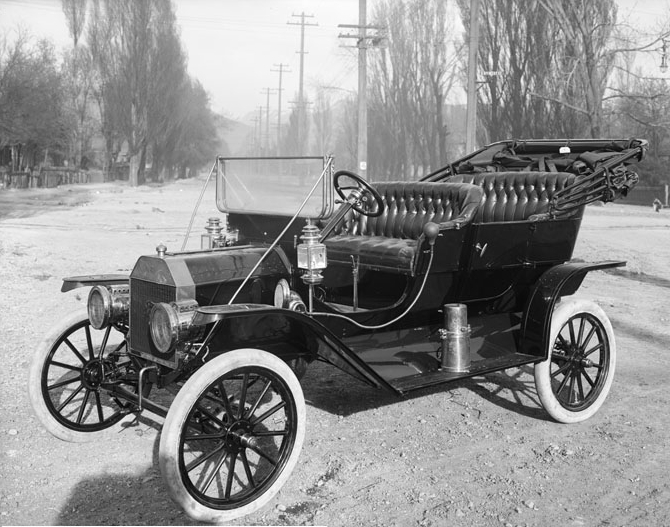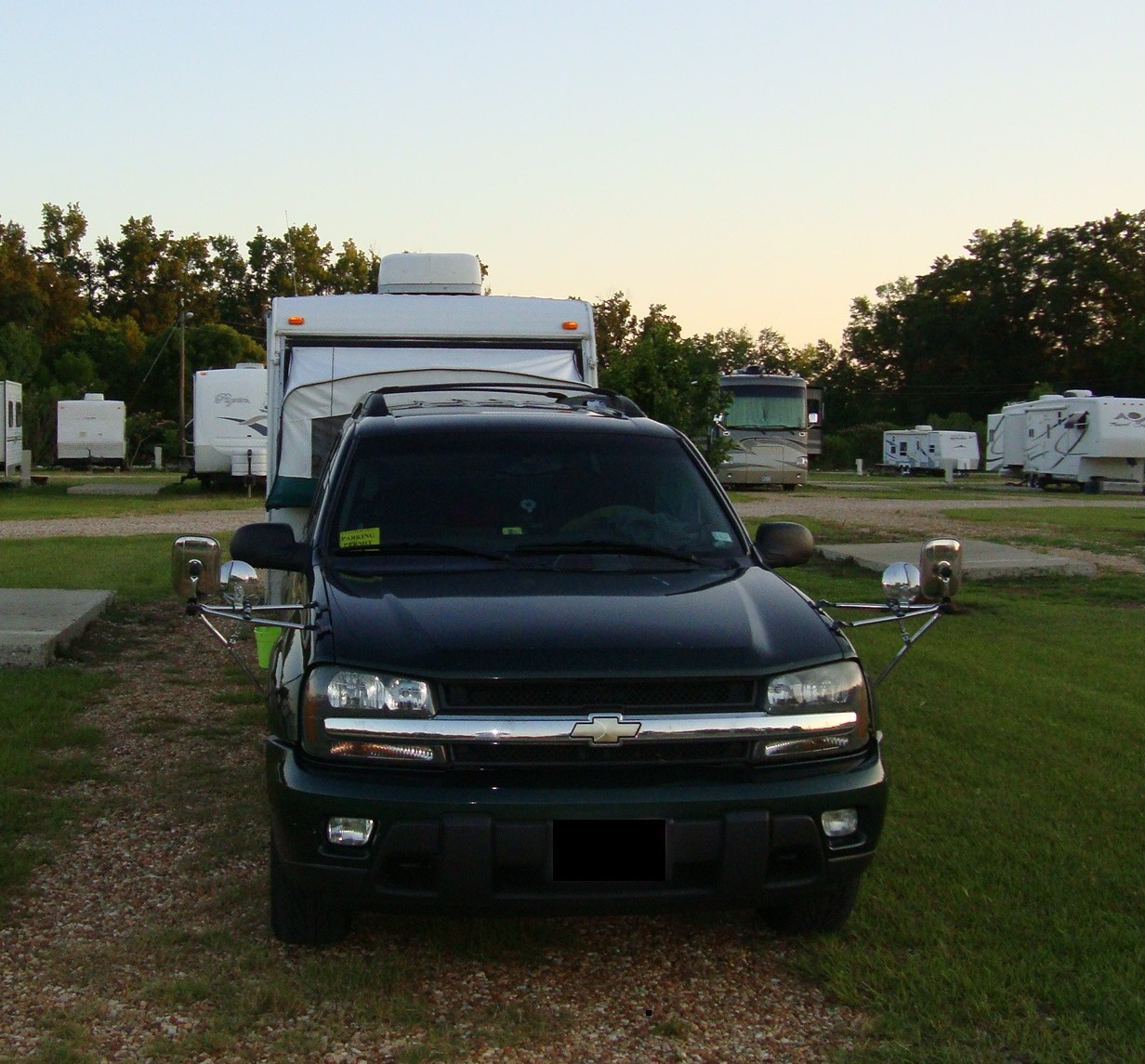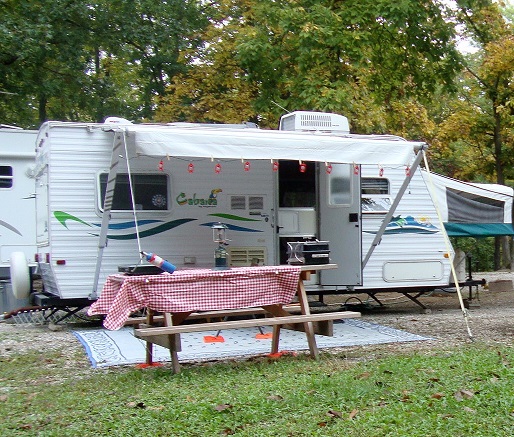Tow Vehicles
Selecting the right tow vehicle to haul your travel trailer is the most critical part of owning an RV. You need a vehicle that is not only dependable, but can also safely handle the addition of a loaded trailer.
Many accidents with travel trailers have occurred due to improperly matching the towing vehicle with a trailer that is heavier than it is rated for. This is termed overloading and is not only unsafe, but is also illegal.
On this page we will examine many of the considerations that go into purchasing a tow vehicle. We will also talk about the different weights that are related to towing, along with their definitions.
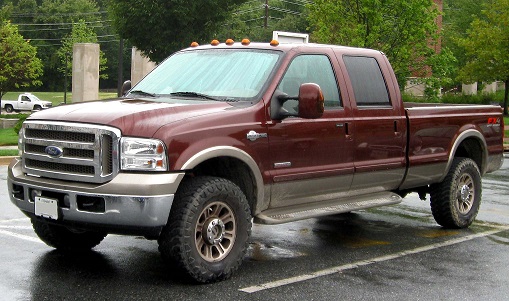
Things to Consider
Choosing the right tow vehicle involves more time and research than the average "family car". Although there are many similarities between the two, a vehicle that will be used to tow with has more considerations that must be looked at.
For most people, their budget is at the top of the list. Today, new trucks, vans and, SUVs can cost over $75,000, depending on the model and options. Add to that, most "truck type" vehicles often have a higher resale value, which makes the purchase of them more costly. Taking some extra time researching prices online, in your local area, can give you a good idea what you will need to spend.
One hint we found is to check the used car lots of economy
car dealers. You can often get a very good deal on a heavy duty truck here. Many times people will trade in their trucks for a
smaller vehicle when they are moving up to a motorhome or "hanging up
the keys."

Knowing what type of vehicle you want to tow with is often a good idea. Do you prefer a pickup, van or SUV? Many times family dynamics will help determine this and make the choice easier. If you are unsure about which would be best for you, talking to owners that tow with different types of vehicles can often give you some insight into what might be right for you.
Think about what kind of trailer you plan to tow. Don't think short term on this. If you think you want to work up to a larger unit, plan the vehicle for that. Too many people have been forced to trade in their current towing vehicle, during a new camper purchase, because their current one was too light. I personally prefer to buy a heavier vehicle than I currently need, whenever possible.

You might also want to consider how often you will be driving and towing with this. If you plan to only tow a few times a year and not drive it much, you could get away with a slightly higher mileage vehicle . However, if you plan to drive it and tow more frequently, a newer one might be might more beneficial.
Know Your Weights
Almost any car, truck, van, or SUV can be equipped to tow some form of
trailer. Even though they can, it doesn't mean they should be. Many times a well meaning salesman will give improper information on the
towing weight of the vehicle they are showing you.
As a result, many people have unknowingly overloaded their tow vehicle because they misunderstood how all the different weight are calculated. Knowing and understanding what contributes to the different weights and how they all work together can help you prevent any problems in the future.
Below is a list of the various weight ratings and their definitions. This is intended to give you a basic understanding of what each weight means and how it can help you choose the right combination of tow vehicle and trailer. You can find the weight ratings for your towing vehicle on the door frame and owners manual. The weight ratings for your travel trailer are on the exterior front left side and in one of the upper kitchen cupboards.
These weights ratings should NEVER be exceeded.
- GVW: Gross Vehicle Weight- The weight of a fully loaded vehicle including all cargo, passengers, fluids, options, hitches, and trailer weight.
- GVWR: Gross Vehicle Weight Rating- The maximum weight the towing vehicle should weigh on a scale.
- RGAW: Rear Gross Axle Weight- The actual weight placed on the rear axle.
- RGAWR: Rear Gross Axle Weight Rating- The maximum weight that the vehicles rear axle can carry.
- GCWR: Gross Combination Weight Rating- The maximum amount that the tow vehicle and trailer, combined, should weigh.
- Maximum Tow Rating: The manufacturers weight limit for towed loads.
- UVW: Unloaded Vehicle Weight- The weight of the trailer as manufactured, without dealer installed options, water, or propane. This could include common options ordered to be installed at the factory and actual factory installed options.
- Tongue Weight: Refers to bumper pull models - The weight of the trailer pressing down on the hitch ball.
- King Pin Weight: Refers to fifth wheel models - The weight of the trailer pressing down on the hitch plate.
- Dry Weight: The weight of the vehicle with standard equipment. This does not include the weight from fuel, fluids, cargo, passengers, or optional equipment.
- Cargo Weight: The weight of cargo, optional equipment, and tongue weight.
- Payload: The weight of passengers and cargo.
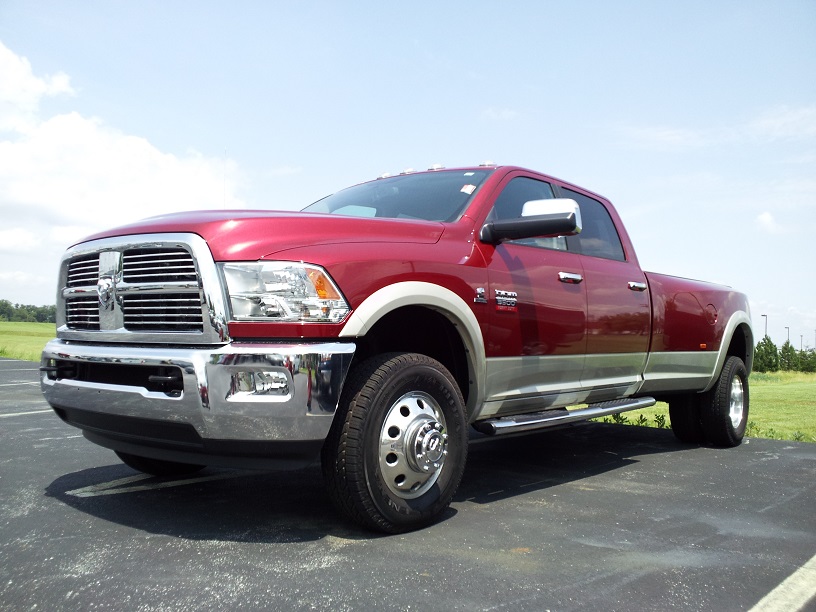
So What's the BIG Deal?
Overloading your rig will increase stopping distance, wear out tires faster, destroy your suspension, and seriously affects the handling of your vehicle.
Having a vehicle that is properly rated for the load it will carry is not just an issue of safety, it is the law. Certain states routinely check weights on camping rigs, just like tractor trailers. Knowing how much weight you're carrying on your rig is not an option.
It is a good practice to know the weight of what you will be carrying in both your camper and tow vehicle. The easiest way to do this, if you own a trailer already, is to pack it with everything you will carry, including water. Then take it to a local truck scale and weigh it.
You can make a list of each item and calculate the total weight that way. A quick tip for our friends who love to figure it out mathematically; water weighs approximately eight pounds a gallon and bicycles are usually calculated at 40 pounds each.
Other Important Considerations
When Selecting a Tow Vehicle
When choosing a tow vehicle, there are several additional options you will need to decide on. These will affect the amount of weight you can safely tow with it and need to be considered carefully when you are planning your purchase.
Below are some of the other factors that will influence the amount a vehicle can tow.
- Transmission: Generally an automatic transmission will provide a higher tow rating than a manual. Today there are a host of transmission options that allow for a host of different tow ratings. Purchasing a vehicle with a heavy duty transmission will generally give you a higher tow rating
- Axle Ratio: Gearing is paramount in determining the tow rating of a vehicle. A lower gear ratio, like 4.10:1, will produce a greater torque multiplication. As a result the tow rating is greater. You do sacrifice some fuel economy to increase towing capacity, but generally the loss is only between 1-2 mpg.
- Drive Systems: Generally a 2 wheel drive vehicle will have a higher towing capacity than a 4-wd, usually up to 500 pounds. Part of the reason for this is the extra gearing in the transfer case adding additional weight to the front end of the truck, which is included in the GVW.
- Towing Package: If you can order a tow package, or buy a vehicle with one on, do it. This will usually give you a higher tow rating and save you a ton of time and money over putting the individual components in yourself. Tow packages usually include the hitch, trailer connection plug, heavy duty alternator, transmission cooler, and other upgrades.
- Bed Style: An aftermarket bed can easily reduce the towing capacity of a truck depending on the build of the bed. A steel bed will easily reduce the capacity by over 2000 pounds.
- Bed Length: There's often not much of a difference in towing weights between long and short bed trucks. Granted the longer bed weighs more, but the longer wheel base adds more towing stability.
- Single Rear Wheel or Dually: Having a dual rear wheel truck, or dually, does not automatically mean the truck has a higher towing capacity. The two extra wheels, heavier rear axle, and heavier brakes add to the overall weight of the truck. The dually, however, provides more stability and has a heavier RGAWR because of the larger rear axle. This makes the dually more desirable for towing a fifth wheel travel trailer.
- Tires: Simply put, larger tires will lower tow ratings. A truck equipped with 20 inch tires can have to tow rating of as much as 2000 pounds less than the same truck equipped with 17 inch wheels. This is not only because of the tire weight, but also because of a smaller air cushion and lower tire sidewall.
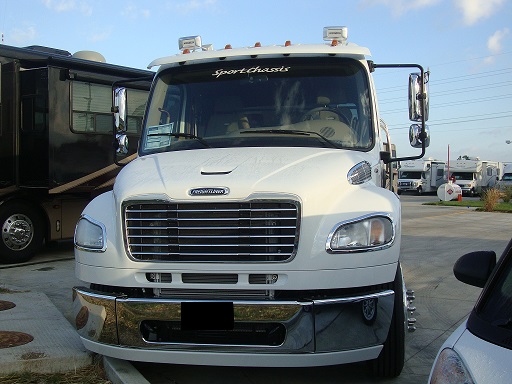 Hauler
HaulerHaulers are not your typical tow vehicle. These are specialized trucks, used to tow larger and heavier trailers. Many full timers prefer these, due to the size of trailers they tend to own. Haulers can be used to tow fifth wheels and conventional travel trailers.
As you can see there is a lot that goes into choosing the proper tow vehicle. Every spring Trailer Life Magazine profiles all the tow ratings for the new vehicle models in their annual towing guide. Not only do they detail the tow ratings, but they also give good quality tips on everything related to towing and choosing the proper tow vehicle. These can be found online, as well as archived towing guides going back several years. It would be worth your time to check out the information listed in these, as well.
Here is a link from Camping Life for you to check out.
Written By: Scott
Exploring Travel Trailers>Travel Trailer Basics>Tow Vehicles
